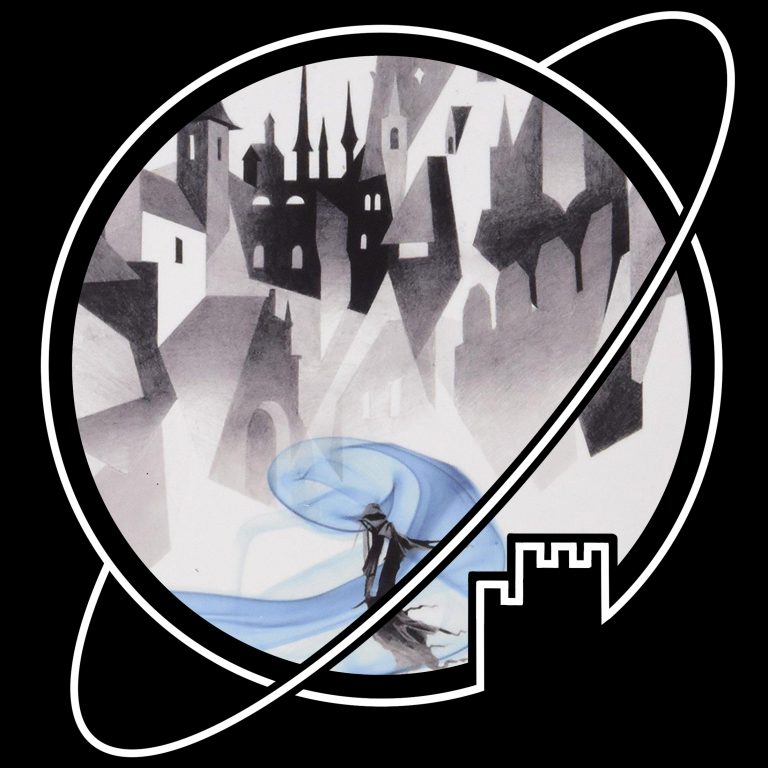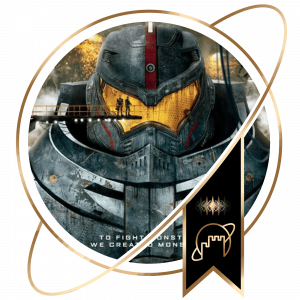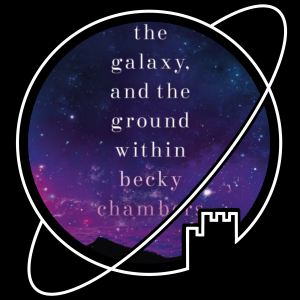Vin, a young thief with a special talent, lives to survive. She knows there is no alternative in the dark society of the Final Empire. Then, however, her world views are challenged by the legendary crew leader Kelsier, a revolutionist who intends to overthrow the cruel Lord Ruler. Not only does he teach Vin that she has the magical talents of a Mistborn, she is also to play a vital role in his reckless plans.


This first book has an interesting premise, which is particularly evident in the worldbuilding. How would a world look in which ‘the Dark Lord’ was the victor of a previous story? The plot focuses on the question of how to overthrow such a regime, which I found quite enjoyable.
It is undeniable that Sanderson’s prose reads easily. At this point, I can spoil that this is true for the whole trilogy. Action scenes, dialogue, exposition, it is all smoothly written. In addition, the worldbuilding and most plot elements are well thought out and original. Along the way, I’ve been pleasantly surprised by a few twists and turns in the story.
What I missed while reading this trilogy, however, was a deeper connection with its characters. Although, as a reader, you spend enough time in their heads to learn their motivations, quirks and flaws, they always remained somewhat flat in my experience. As if they are too rationally created, and too subservient to the plot. Another disappointing fact was the severe lack of female characters.
Another aspect I struggled with, was Sanderson’s tendency to take the reader by the hand and explain too much, which often comes at the expense of the tension of the story. In a similar way, many basic things (such as the magic system) continue to be explained in depth, even long after such explanations are useful. I found this particularly jarring in the extended, cinematic action scenes of the Allomancers, which I didn’t really care about much to begin with.
All in all, I would say that this first entry of the trilogy can easily be read as a stand-alone. Although I don’t regret reading the rest of the trilogy, the narrative structure of those books differ from The Final Empire, which I think is the strongest of the three.

The Final Empire was my first foray into Brandon Sanderson, who, I think, we all have to admit is one of the great names in the modern Fantasy genre. It is possible that that influenced my opinion; I certainly expected a top tier novel.
Was I disappointed? Perhaps somewhat. The Final Empire is good, but Sanderson is not about to break into my top five. Or top ten. Or top twenty.
What are the things the The Final Empire has going for it? It has a great premise and original world-building – it is set in a sort of post-apocalyptic fantasy dystopia that is ruled by a god-emperor that was the villain of a thousand year old myth. It features a great cast of characters that band together almost in an Ocean’s Eleven-style team to pull the heist of the millenium. It has an interesting hard magic system that makes for cool power fantasies in the heroes. It has smooth, if somewhat simple, prose that reads effortlessly. It is well-planned and features a really satisfying twist towards the end.
Those elements would seem to make for a five-star novel, so where does it fall flat? Sanderson has a tendency to over-explain, to over-describe, and to over-set-up. Sanderson, I feel, is a very conscious writer, aware of tropes, techniques, common critiques. He has written essays on writing, taught courses on writing. His stories appear clearly well-planned. But as a result, they lack life. Everything clicks, but nothing seems to have soul. Everything is demystified.
In addition – and I chalk this up under the pitfalls, but I am sure other people will enjoy this – Sanderson writes very detailed, sometimes dozen-page-long action sequences. You’ll start wondering whether Sanderson perhaps thought he was writing a film script or the storyline for a videogame rather than a book. His magic system – with lines pointing at things, thumping signals allowing you to locate enemies, management of magic resources – almost makes you feel like you would want a heads-up display showing your health and mana bar on screen. The scenes full of allomancy are unique, however, and make for some fireworks if you’re willing to go through the effort of mentally visualising people zipping through the air, pushing, pulling, dodging, and shooting coins at each other.
Most importantly, though, the characters simply do not come to life the way they do in some other novels. Apart from a few main characters, most of the people in the world feel a bit flat. Especially the book’s romance towards the end feels like Sanderson decided to write “and then they fell in love” without going through the effort of having it make sense.
So, in conclusion, would I recommend The Final Empire? The story is engaging and the world interesting. The characters are only so-so, but that shouldn’t be what you’re reading this for. The Final Empire reads somewhat like a good B-movie (Pacific Rim anyone?), one of those action movies you know you shouldn’t enjoy, but sometimes still do.
I debated giving this an extra half star, but having finished the trilogy, a lot of the set up going on in this book is sadly leading into two sequels that don’t live up to the quality – and especially the originality – of the first part. I won’t recommend the trilogy as a whole, but if the premise has made you curious, I would suggest you pick up The Final Empire and give the other two parts a miss.

I’ve heard a lot of good things about Mistborn so I’ve been really curious to see what it’s like for myself. Not curious enough to read it immediately after buying, of course, but enough to pick it up after briefly considering re-donating the trilogy to the thrift store during a move.
I wasn’t blown away by The Final Empire (or Mistborn as my version is called – I don’t love when book titles get swapped around in order to name a trilogy). It’s definitely got some cool world-building, and Sanderson is great at action scenes. There’s some descriptions of characters fighting that were genuinely riveting – and I tend to hate fighting scenes! However, the story tends to fall a little flat on an emotional level. Sanderson’s characters aren’t bad, but they’re definitely lacking in depth. I did like the two main characters, Vin and Kelsier, but they didn’t quite feel like real people to me. I felt like Sanderson spent a lot of time telling us about the relationships between his characters, where he could have spent some more time showing us.
Sanderson’s dialogue is perfectly fine though far from exceptional, but the way he writes characters thinking things pulled me straight out of the story. The way their thoughts are written is so clunky? Like… the way a kid writes dialogue clunky. It wasn’t enough to make me dislike the book as a whole, but it’s pretty jarring compared to the quality of the rest of the book.
The pacing is also a little weird. It takes quite long for the story to get started, and then it ends very abruptly when you’re finally growing attached to the world and the characters.
While I think I would recommend The Final Empire if you happen to come across it, it’s not a must read for me at all.










